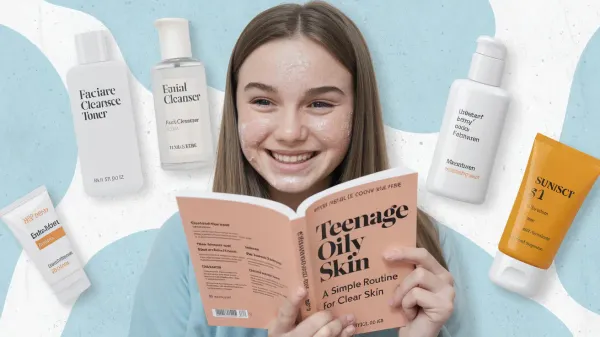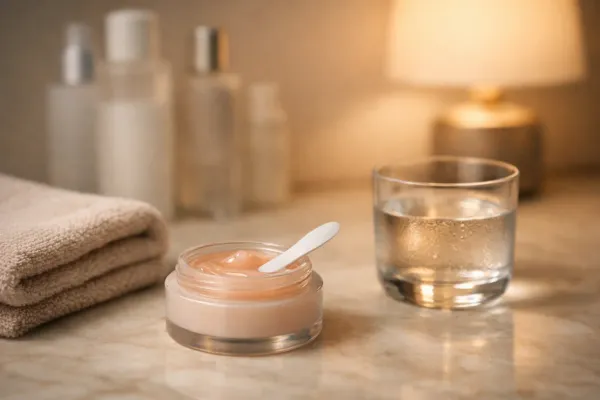Why Your Lips Are Constantly Chapped (And It's Probably Not What You Think)
Your toothpaste is destroying your lips. Stop treating symptoms and fix the root cause. Here's what actually works.
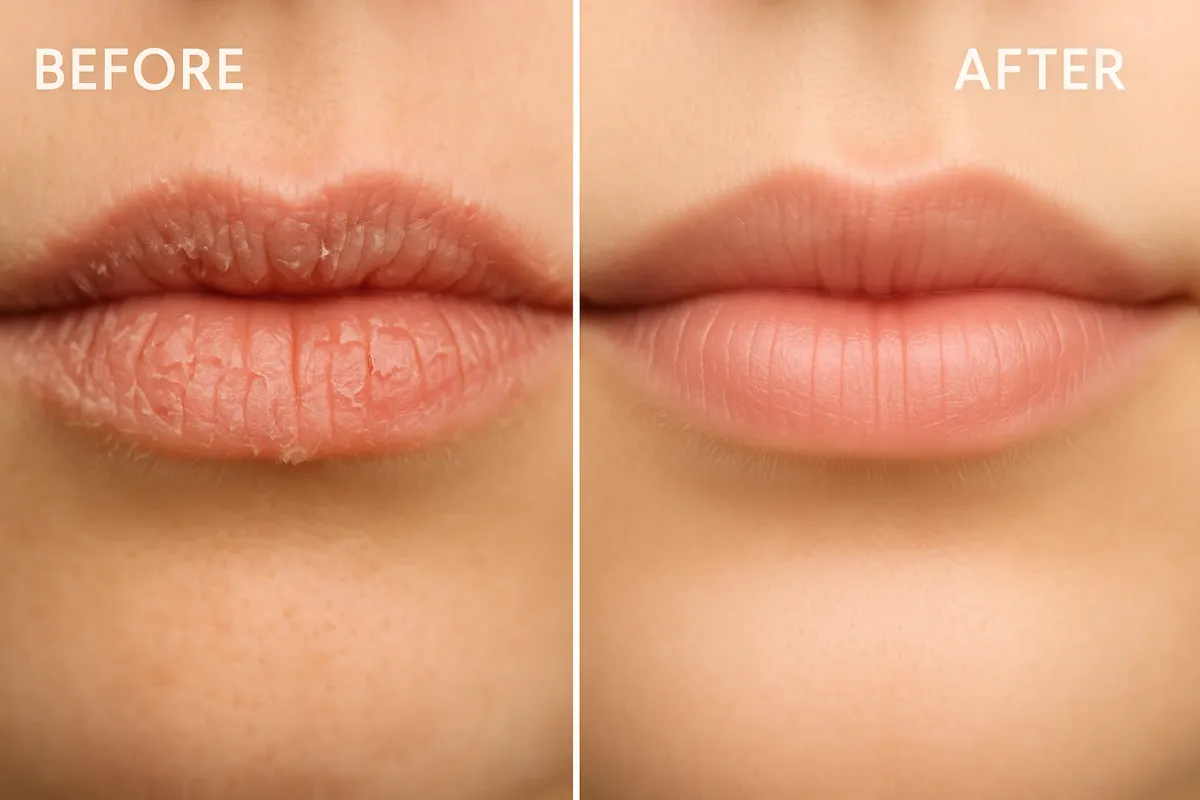
Look, I'm going to be straight with you.
If you've been dealing with chapped lips for months, you're probably treating the symptom and completely ignoring the real problem.
Why Your Lips Are Constantly Chapped — Quick Summary
TL;DR
Chronic chapping is usually irritant exposure + environment + habits
- Lips lack oil glands → dry out faster; cold/wind/low humidity strip moisture quickly.
- Saliva cycle: lip‑licking briefly soothes but evaporates → more dryness and enzyme irritation.
- Hidden irritants: fragrance/flavor, menthol, cinnamon, citrus oils, camphor can trigger cheilitis.
- Allergens: propolis, lanolin, castor oil derivatives, dyes in lipsticks or toothpaste (SLS) can flare.
- Medications/conditions: isotretinoin, diuretics, thyroid issues, dermatitis, yeast overgrowth.
- Best quick fix: occlusive balm + humidifier + avoid triggers for 2–3 weeks.
If cracks bleed, extend past lip border, or persist >4 weeks despite care, see a clinician.
You're slathering on lip balm every hour. You're drinking water like it's your job. You're avoiding the cold.
And nothing's working.
Here's why: You're playing defense when you should be playing offense.
Let me show you what's actually destroying your lips (and how to fix it for good).
The Real Culprit Is Hiding In Your Bathroom
Most people with chronic chapped lips have no idea they're doing this to themselves.
Want to know the number one cause I see?
Your toothpaste.
Yeah, I'm serious.
That minty fresh toothpaste you use twice a day contains Sodium Lauryl Sulfate (SLS). It's a foaming agent that strips the natural oils from your lips. And those "refreshing" strong flavors like cinnamon and mint? They're irritating your lip skin every single time you brush.
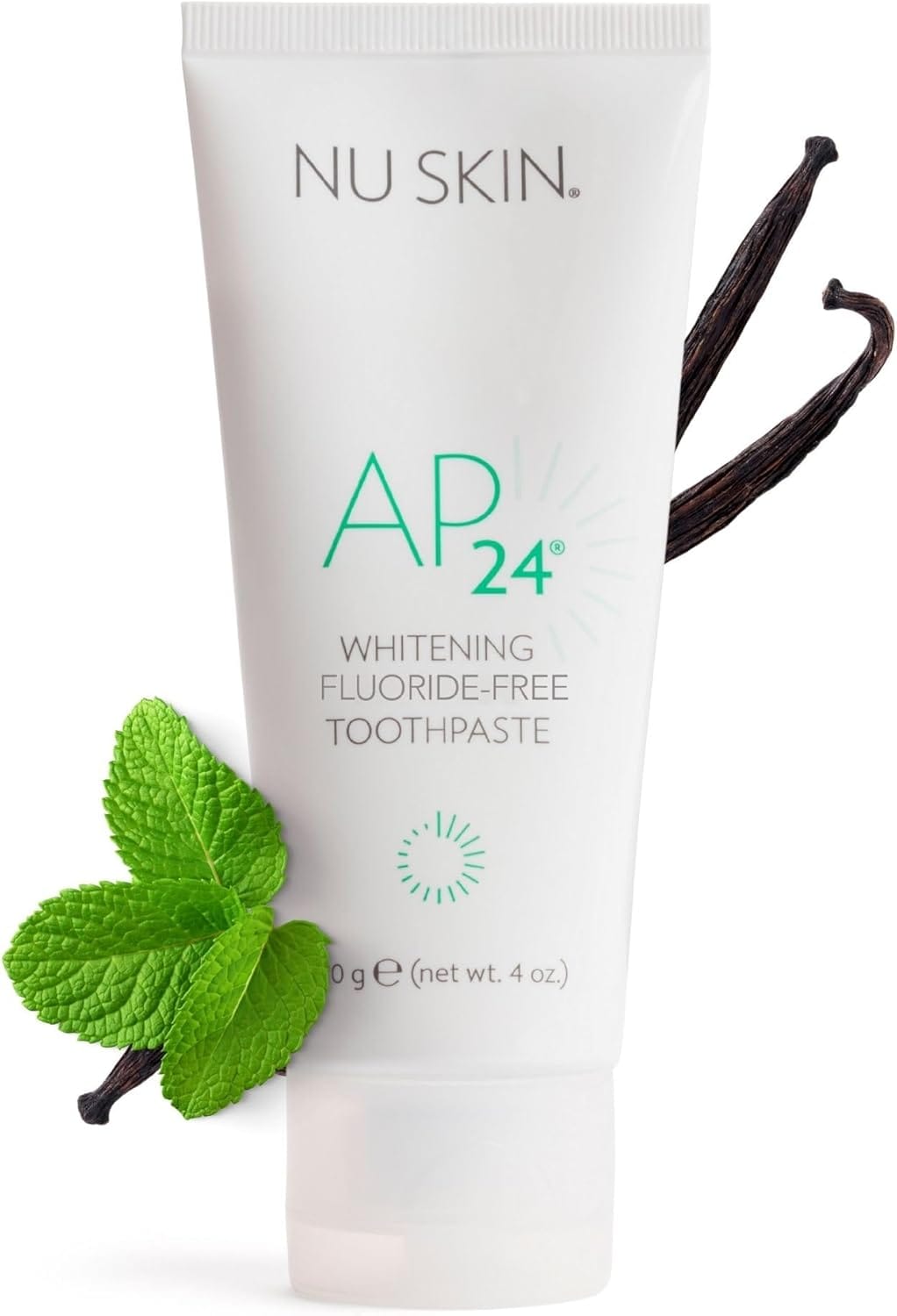
Nu Skin AP 24 Whitening Fluoride - Free Toothpaste
AP 24 Blend | Vanilla Mint Flavor | Brightens Teeth | Removes Surface Stains | Prevents Dental Cavities & Plaque | Enamel-Safe
*Affiliate Link - No extra costs to you
People switch to SLS-free toothpaste and their chapped lips disappear within weeks. No joke. It's one of the biggest skincare mistakes to avoid that affects people of all ages.
But that's just the beginning.
Stop Doing This One Thing (You're Making It Worse)
Here's what kills me.
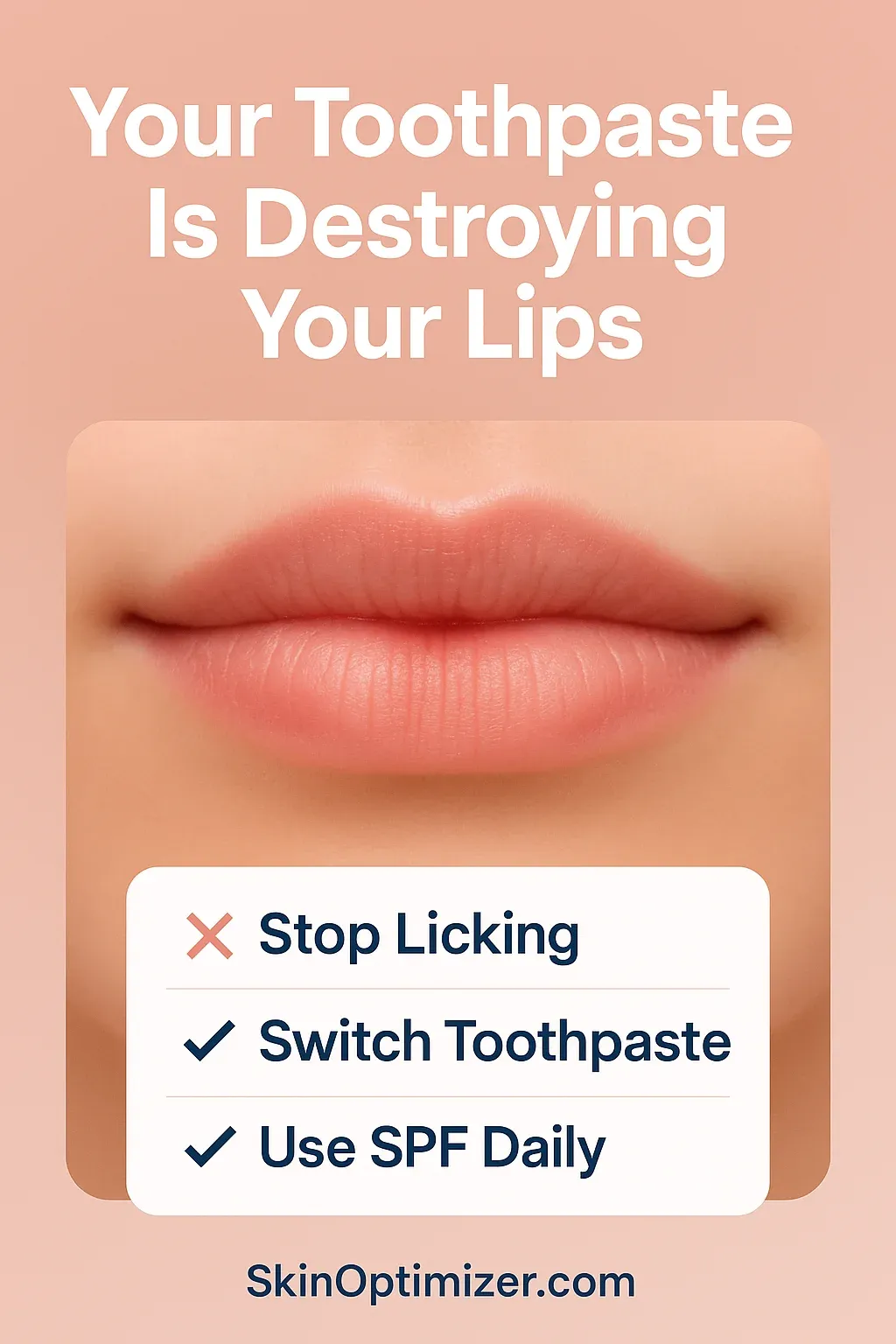
When your lips feel dry, what do you do? You lick them.
Worst. Thing. Ever.
Your saliva has digestive enzymes designed to break down food. When you lick your lips, those enzymes are literally eating away at the delicate skin on your lips. You get temporary relief for about 30 seconds, then it's twice as bad.
It's like putting out a fire with gasoline.
The 3 Types of Chapped Lips (And Why Yours Isn't Healing)
Not all chapped lips are created equal. There are three main types, and if you don't know which one you have, you're never going to fix it.
| Type | What It Looks Like | The Real Problem |
|---|---|---|
| Actinic Cheilitis | Rough, scaly patches (usually lower lip) | Years of sun damage. This is precancerous and can turn into skin cancer |
| Angular Cheilitis | Painful cracks at the corners of your mouth | Mix of moisture, infection, and nutrient deficiencies |
| Eczematous Cheilitis | Red, itchy, burning lips | Irritants or allergens you're exposing yourself to daily |
Actinic Cheilitis: The One You Can't Ignore
This is the serious one.
If you've got rough, discolored patches on your lower lip that won't go away, you need to see a doctor. Now.
This condition affects 3-10% of people and can progress to squamous cell carcinoma (skin cancer). And when cancer starts on the lips, it's more likely to spread than other areas.
Who's at risk?
- Fair-skinned people
- Men (because most don't wear lip protection)
- Outdoor workers (farmers, construction, sailors)
- Anyone over 65
- People living at high altitudes or near the equator
The fix? You need to protect your lips from sun damage with SPF lip balm. Every single day. SPF 30 minimum. Not negotiable.
Angular Cheilitis: The Corners Are Telling You Something
Those painful cracks at the corners of your mouth aren't random.
It starts with moisture (from drooling, ill-fitting dentures, or thumb sucking). The skin breaks down. Then yeast or bacteria move in and set up shop.
But here's the kicker: it's often linked to nutritional deficiencies.
Your body is telling you it needs:
- Iron
- Zinc
- B vitamins (especially B2, B3, B6, B9, and B12)
Vegans and vegetarians are especially at risk. So are people with absorption issues like Crohn's disease or celiac disease. This is where understanding hydration versus moisturization becomes critical - your skin needs both internal nutrients and external protection.
The Hidden Triggers Destroying Your Lips
Beyond toothpaste, there are other sneaky culprits wrecking your lips every day.
Your "healing" lip balm might be the problem:
- Menthol
- Camphor
- Phenol
- Alcohol
- Parabens
- Fragrances
These ingredients irritate more than they help. That tingling sensation? That's not healing. That's irritation.
Common allergens you're not thinking about:
- Nickel in oral piercings
- Lanolin in moisturizers
- Mango, citrus, cinnamon in foods
- Preservatives in lip products
Environmental factors hitting you hard:
- Sun exposure (year-round problem, not just summer)
- Cold, wind, low humidity
- Mouth breathing (constant air flow dries everything out)
- Dehydration (not just about water, but you're probably not drinking enough)
Medical Conditions That Show Up On Your Lips
Sometimes chapped lips are your body's way of screaming that something else is wrong.
Thyroid problems: Both underactive and overactive thyroid can cause dry mouth, which leads to chapped lips. Your salivary glands aren't working right.
Inflammatory bowel disease: Crohn's disease can cause dry lips and corner cracks.
Immune issues: HIV/AIDS, diabetes, Sjogren's syndrome, lupus - all linked to chapped lips.
Medications: If you're on Accutane or other vitamin A derivatives, dry lips are basically guaranteed. These drugs disrupt your skin's protective barrier.
How To Actually Fix This (The Protocol That Works)
Here's what you need to do, in order:
Step 1: Eliminate The Obvious Triggers
- Switch to SLS-free, bland toothpaste immediately
- Ditch lip products with menthol, camphor, or strong fragrances
- Stop licking your lips (seriously, just stop)
- Apply SPF 30+ lip balm every morning
Step 2: Lock In Moisture The Right Way
Use thick, bland ointments like petroleum jelly.
The best moisturizers for dry skin contain ingredients that actually work:
- Ceramides
- Hyaluronic acid
- Glycerin
- Shea butter
Apply these after washing your face while your skin is still slightly damp. This seals in moisture. If you want to understand why ceramides are so effective, check out the power of ceramides for moisture locking.
Step 3: Fix Your Nutrition
Eat a balanced diet with plenty of fruits and vegetables. Want to know which ones work best?
Read about 15 essential antioxidant-rich foods for glowing, healthy skin. If you're vegan or vegetarian, consider supplements for:
- Iron
- Zinc
- B-complex vitamins
Your lips are a direct reflection of what's happening inside your body. Feed yourself right, and they'll respond.
Step 4: Hydrate Properly
Drink at least 8 cups of water daily. Not coffee. Not soda. Water. Discover how water intake transforms your skin from the inside out.
And if you're a mouth breather (especially at night), consider addressing that. It's drying out your lips constantly.
Step 5: Protect From The Elements
- Wear a wide-brimmed hat outdoors
- Use a humidifier if you live in a dry climate
- Reapply lip balm throughout the day, especially before bed
When To Stop Messing Around And See A Doctor
Look, some things you can fix yourself. Some things you can't.
See a doctor if:
- You have rough, scaly patches that won't heal (could be precancerous)
- Corner cracks persist for more than 2 weeks
- Your lips are constantly inflamed despite trying everything
- You suspect an underlying health issue
They might do:
- Skin biopsy (for suspected actinic cheilitis)
- Microscopy or culture (to identify fungal or bacterial infections)
- Blood tests (to check for nutritional deficiencies)
- Allergy patch testing (to find specific allergens)
Treatment options for serious cases:
- Antifungal creams (clotrimazole, miconazole) for infections
- Antibacterial creams (mupirocin) for bacterial issues
- Topical creams for precancerous lesions (retinoids, 5-fluorouracil, imiquimod)
- Cryotherapy, laser ablation, or surgery for actinic cheilitis
The Bottom Line
Chapped lips aren't just annoying. They're a message.
Your body is telling you something's wrong. Maybe it's your toothpaste. Maybe it's a nutritional deficiency. Maybe it's sun damage that's been building for years.
Stop treating the symptom. Find the root cause.
Switch your toothpaste. Stop licking your lips. Wear SPF every day. Fix your nutrition. Lock in moisture with the right products.
Do these things consistently for 2-4 weeks, and you'll probably see a massive difference.
If not? See a doctor. Because chronic chapped lips can be a sign of something more serious that needs professional treatment.
Your lips are literally on your face. Everyone sees them. Take care of them.
You might also like:
FAQ — Why your lips are constantly chapped
Straight talk. Fast fixes. Zero fluff.
Lips dry out fast from cold or hot dry air, sun, and wind. Licking makes it worse — saliva evaporates and strips moisture. Irritants in lip products can trigger cracking, too. Fix the basics: cover up outside, use a humidifier, and switch to a gentle, fragrance‑free balm with SPF.
Use a thick ointment (petrolatum) several times a day and before bed. When outside, reapply a balm with SPF 30+ about every 2 hours. Stop licking, picking, and biting. Run a humidifier and drink water. Most people improve in 2–3 weeks with steady care.
Your balm may be the problem. Common culprits: fragrance, flavor (mint/cinnamon/citrus), menthol, camphor, phenol, salicylic acid, eucalyptus, and even lanolin for some. Switch to simple, hypoallergenic options with petrolatum, dimethicone, ceramides, shea butter, mineral or castor oil. If no change after a few weeks, get it checked.
Skip menthol, camphor, phenol, salicylic acid, eucalyptus, fragrance, and strong flavors (mint, cinnamon, citrus). Some react to lanolin, octinoxate, or oxybenzone. Better picks: petrolatum, white petroleum jelly, dimethicone, ceramides, shea butter, mineral oil, castor seed oil, zinc oxide or titanium dioxide for sun.
Yes. Not drinking enough and very dry air can crack lips. Less often, low iron or B vitamins can play a role. Focus on hydration and a simple, non‑irritating balm first. If lips stay chapped for weeks or you get swelling, sores, or painful corners, see a clinician.
Affiliate Disclaimer: This post may contain affiliate links, which means I may receive a small commission if you make a purchase through my links, at no extra cost to you. I only recommend products I genuinely believe in and would use myself. Your support helps keep this blog running and allows me to continue creating free content to help you achieve your best skin. Thank you for supporting SkinOptimizer!


